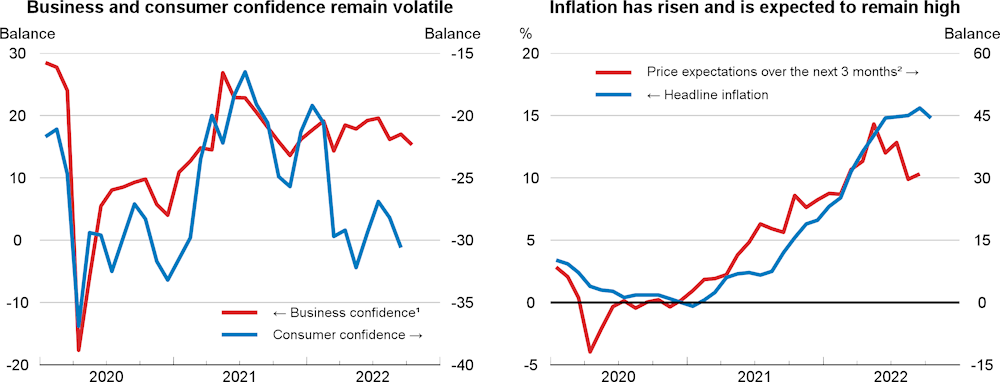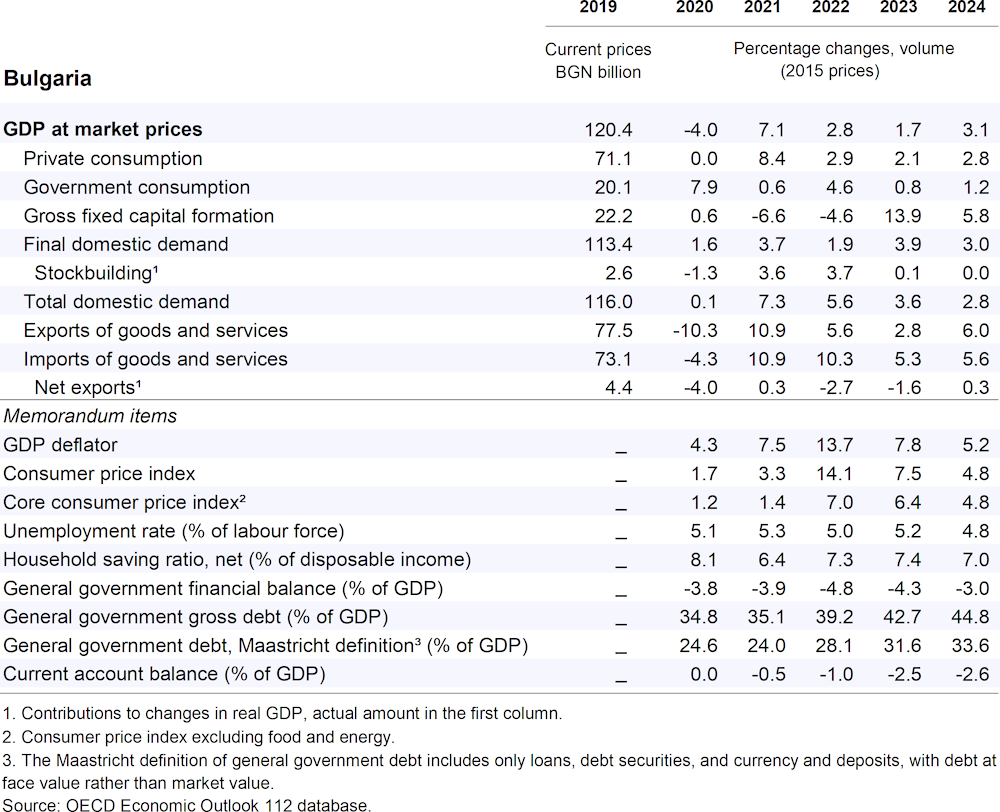GDP growth is projected to slow to 1.7% in 2023 before rebounding to 3.1% in 2024, supported by investments from EU funds. Exports will be adversely affected by the deteriorating macroeconomic situation in Europe, while high energy prices and rising interest rates will weigh on consumption. Inflation will slowly decline amidst stabilising energy prices and subdued economic activity. Energy supply is secured thanks to low dependence on gas, a new pipeline, and a position as a net exporter of electricity. Bulgaria is assumed to enter the euro area at the start of 2024.
Effective management and roll-out of EU funds is required to support activity and to return to the pre‑crisis convergence path towards OECD-average per capita incomes. Support packages, including price caps on electricity along with VAT and excise tax reductions on gas, have shielded consumers and businesses from rising energy prices, but the measures should be better targeted and designed to preserve incentives for energy savings. Investments in renewable energy need to be encouraged as they would help to align efforts to decarbonise the economy and address energy security concerns.

